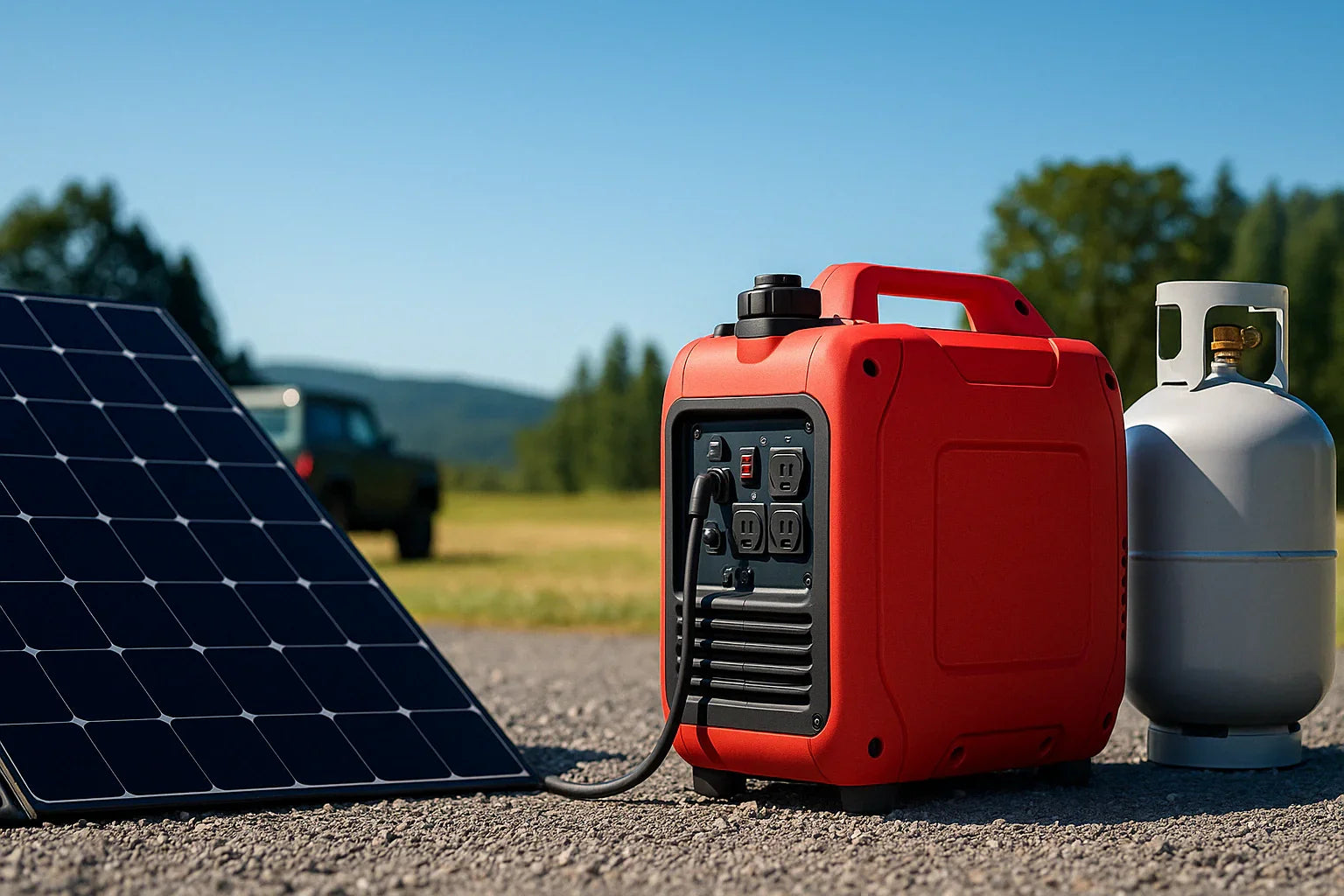Sustainability fuels demand for eco-friendly power solutions. Inverter generators lead, delivering clean energy and lower emissions. Perfect for green-minded users, they support the clean energy movement. This article dives into their benefits, backed by data and insights, highlighting their role in sustainable power.
What Is an Inverter Generator?
An inverter generator offers portable, stable electricity via advanced technology. Unlike traditional models, they follow a three-step process:
1. Generate: A fuel-powered engine produces AC power.
2. Convert: AC transforms into direct current (DC).
3. Invert: An inverter converts DC to clean AC.
This ensures consistent voltage, safe for devices like smartphones. Their design emphasizes efficiency and eco-friendliness. Learn more at the U.S. Department of Energy.
Why Inverter Generators Support Clean Energy
Fuel Efficiency Reduces Waste
Smart throttle technology adjusts engine speed to power demand. Unlike fixed-speed generators, inverter models conserve fuel significantly. The U.S. Department of Energy reports 20–40% higher efficiency. Emissions drop as a result.
A 2000W inverter consumes 0.1–0.2 gallons hourly. Conventional models use 0.3–0.5 gallons instead. Such efficiency lowers CO₂ output. Annual savings grow, per EPA’s Greenhouse Gas Equivalencies Calculator .
Propane and Dual-Fuel Options

Lower Noise Pollution
Noise disrupts humans and wildlife. Traditional generators hit 70–90 decibels, like lawnmowers. Inverter generators run at 50–60 decibels. Sound-dampening materials ensure quiet operation. This fits national parks or quiet neighborhoods.
Compact and Sustainable Design
Weighing 20–100 pounds, inverter generators are compact. Their size cuts manufacturing materials. Easy storage promotes responsible energy use. They avoid reliance on fuel-heavy systems. This supports sustainable living practices.
Extended Lifespan for Less Waste
Variable-speed engines reduce wear and tear. This extends generator lifespan significantly. Fewer replacements mean lower manufacturing emissions. Long-lasting equipment aligns with sustainable consumption goals. Users save money over time.
Clean Energy Applications
Inverter powers shine in eco-friendly scenarios:
Outdoor Recreation: They power camping gear efficiently.
Emergency Backup: They run essentials during outages.
Off-Grid Living: They pair with solar systems.
Small-Scale Construction: They power tools with low emissions.
Event Power: They support eco-sensitive festivals quietly.
Data-Driven Environmental Impact
Inverter generator delivers measurable benefits:
· Emission Reductions: They emit 30–50% less CO, per California Air Resources Board.
· Fuel Savings: They save 10–20 gallons yearly, cutting 200–400 pounds of CO₂.
· Resource Efficiency: Compact designs use fewer raw materials.
For example, a 3000W model powers a fridge for 10 hours on 2 gallons. Traditional models need 3–4 gallons. This efficiency compounds over time, reducing carbon footprints. Additionally, their quiet operation minimizes wildlife disturbance, preserving ecosystems. Choosing CARB-compliant models ensures adherence to strict emission standards, further enhancing air quality.
Choosing the Right Inverter Generator
Maximize eco-benefits with these tips:
· Power Output: Match needs (1000W for phones, 3000W for appliances).
· Fuel Type: Pick propane for cleaner burning.
· Efficiency Features: Seek eco-mode or smart throttle.
· Noise Level: Aim for below 60 decibels.
· Certifications: Verify CARB or EPA compliance.
The Future of Inverter Generator
Clean energy demand shapes inverter generator innovation. Manufacturers explore solar-integrated systems and lithium batteries. A 2024 Grand View Research report predicts 5.8% market growth through 2030. Emerging technologies include hybrid models combining solar and propane. These reduce fossil fuel reliance further. Smart controls may optimize efficiency via real-time monitoring. Such advancements solidify their role in sustainable power.
Practical Tips for Eco-Friendly Use
To enhance sustainability, follow these steps:
Maintain Regularly: Clean filters extend efficiency and lifespan.
Use Proper Fuel: Choose high-quality propane or unleaded gasoline.
Store Correctly: Keep in dry, ventilated spaces to avoid damage.
Run Efficiently: Operate only when needed to save fuel.
Recycle Old Units: Dispose at certified e-waste centers.
These habits maximize environmental and cost benefits. For instance, regular maintenance prevents fuel leaks, reducing waste. Proper storage avoids premature replacements, saving resources.
Final Thoughts
Inverter generators blend portability and eco-consciousness. They offer clean power and propane compatibility. Quiet operation suits sensitive environments. Smart throttle and compact designs cut waste. For camping, emergencies, or off-grid living, they outperform traditional models. Choose CARB-compliant, low-noise units for maximum impact.
Looking for clean backup power? Try a propane-ready inverter generator designed for low emissions and quiet operation.



